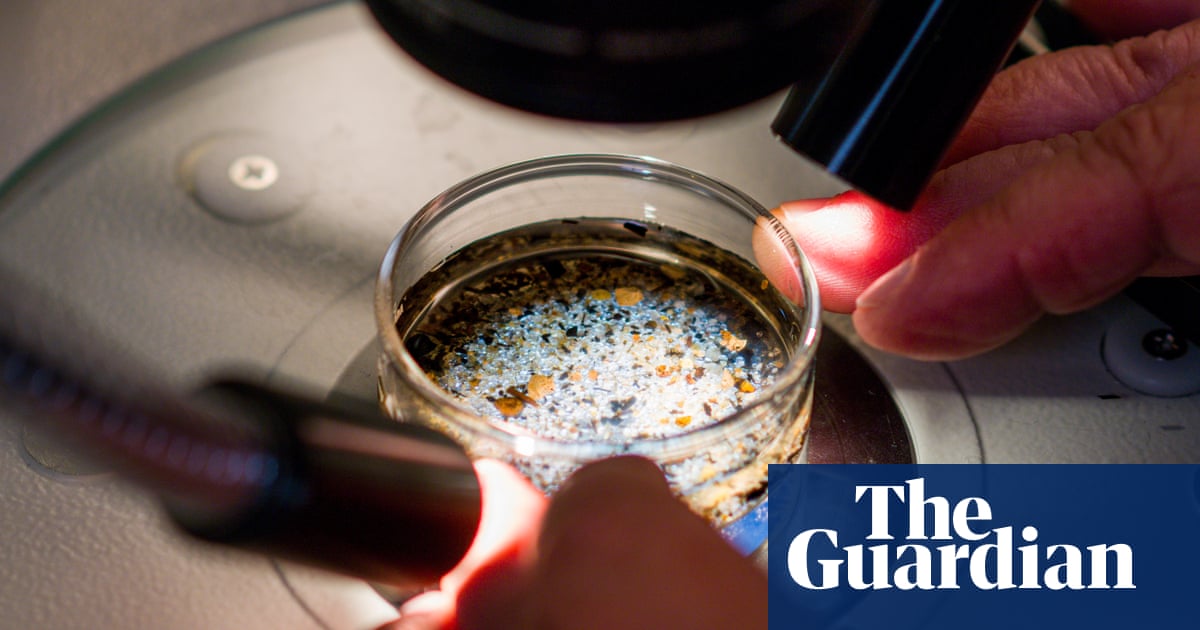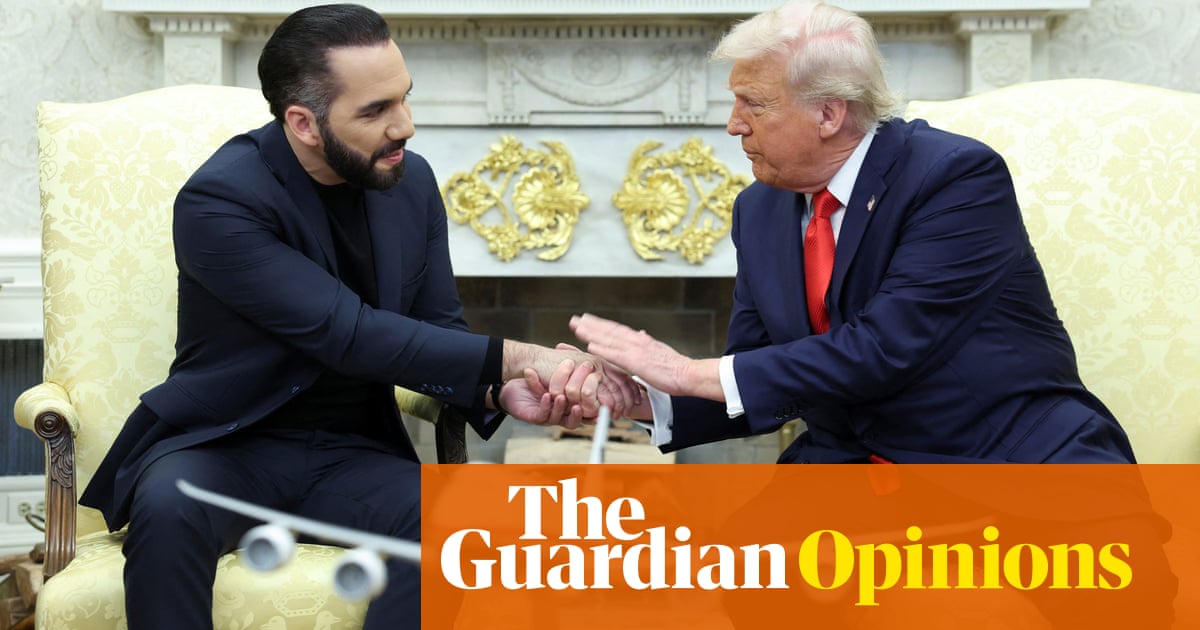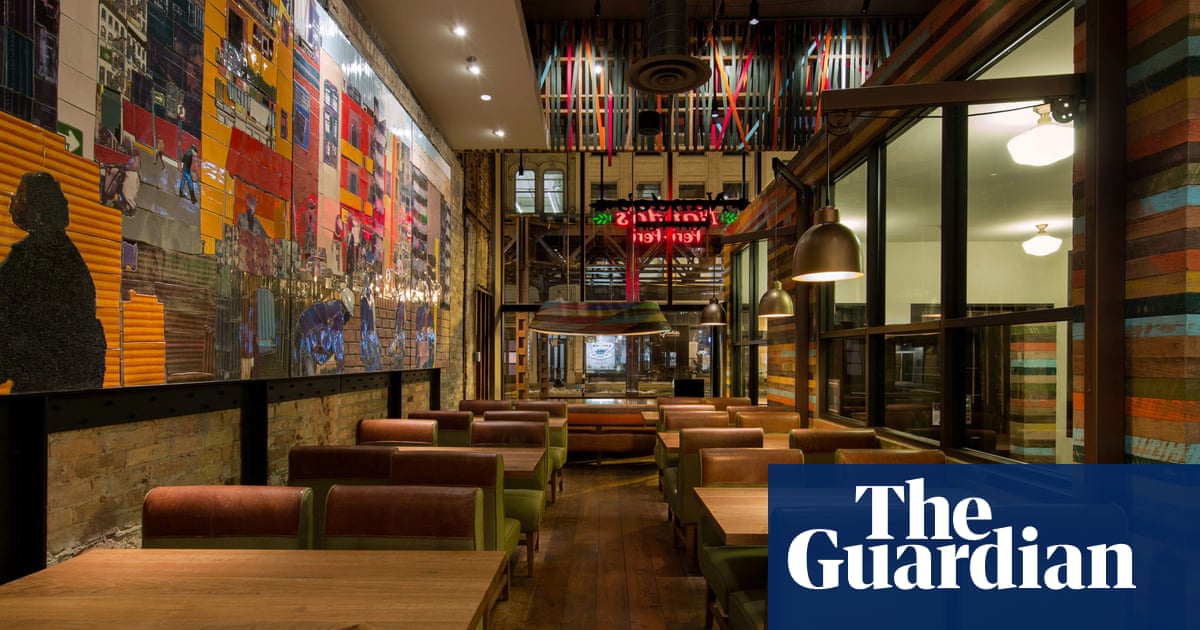There is much to admire about the US. The great French social observer Alexis de Tocqueville, nearly 200 years ago, lauded its commitment to civic virtue, individual self-improvement and hard work – legacies of its puritan founders.
Those traits are still evident today, but alongside them a darker one has emerged. The US, the hegemon of the 20th century still committed to democracy, has changed. It has transmuted into an imperial power careless of democracy but ever readier to exact economic tribute from its vassal states.
No country has become more of a US vassal than the UK. This evolution is exposed in an eye-opening book, Vassal State: How America Runs Britain. Donald Trump’s impending inauguration, accompanied by threats of tariffs and the downgrading of its commitment to Nato unless its client states bend even more to its will, has shaken western capitals. But, as author Angus Hanton carefully documents, this is not something new; the US has been putting America first for decades. Trump is only turning up the dial on a longstanding phenomenon. Changing this demands more than appointing the sinuous Lord Mandelson as British ambassador to the US: it is about recognising the extent of what is happening, then fighting fire with fire. It is time to put Britain first.
Hanton writes that 25% of British GDP is made up of sales of 1,256 US multinationals operating in Britain. It includes everyday sectors – breakfast cereals, soft drinks, car manufacture, taxis, food delivery, online shopping, travel, coffee, social media, entertainment (Kellogg’s, Coca-Cola, Ford, Uber, Deliveroo, Amazon, Expedia, Starbucks, X, Netflix) – and knowledge-intensive sectors ranging from data (Apple, Meta/Facebook, Google, Microsoft) to finance (Goldman Sachs, Morgan Stanley, BlackRock). As he reels off the statistics and extent of the exploitative dominance, your head spins.
For this is not benign. Britain is so blind to the negative dimensions of loss of control – from tax avoidance to being stripped of strategic technologies – that, amazingly, as Hanton writes, politicians blithely laud the process as “being open for business”. Thus over the past 20 years there has been a tsunami of acquisition of brilliant British technology companies by US corporations and private equity houses. The path-breaking artificial intelligence company DeepMind, for example, is now owned by Google. Cyberspace pioneer Darktrace was recently bought by US private equity company Thoma Bravo and bio tech Abcam by Washington DC’s Danaher – part of a $12.7bn spending spree on Cambridge University companies in 2024 alone. There are fears at Oxford University that the newly established, lavish Ellison Institute, financed by Oracle founder Larry Ellison, is poised to launch a similar US assault on its intellectual property, spinouts and startups.
after newsletter promotion
Some of the decision-making and research remains in Britain but, as Hanton observes, more frequently after takeover the headquarters go to the US. Goodbye to our significant presence in the space sector, as Inmarsat was bought by California’s Viasat, and Britain is downgraded from a potential tier-one to tier-three space power. Hi-tech 3D printer Meggitt has migrated to Parker Hannifin, based in Cleveland (part of what, with Chobham and Ultra, were our defence and aerospace “crown jewels” identified by the US International Trade Administration in 2019, but now all in US ownership), while Worldpay, spun out of NatWest, now has its HQ in Cincinnati. It’s not just the loss of crucial intellectual property, reports Hanton; the migration makes cities all over the US more prosperous – a geographical fairness of which the British can only dream.
Tech entrepreneur and financier Hermann Hauser, co-founder of Arm, now publicly listed in New York but which began life in the UK and would by now have been our third biggest quoted company, writes that there are three litmus tests for tech takeovers: do we still control the technology in the UK; is there access from other countries; and, if not, does the UK seller have guaranteed, unfettered, secure access? If the answer to all three is no, then the “danger is of becoming a new vassal state to these tech giants… of a new kind of colonialism”. That is happening as we watch.
Then there is the US attitude to tax. Tax departments of US multinationals are regarded as profit centres, using every avenue available – selling into the UK from low-tax Ireland, routing profits through tax havens often under British control, artificially lowering profits in Britain through transfer pricing – so that on average tax represents only 5% of profits. If the effective tax rate were just 15% on only the profits we know about, Britain would be at least $10bn (£8bn) a year better off. The true figure is almost certainly half as much again. And if Britain dares to suggest even a mild corrective, such as the proposed digital services tax of 2% in the 2018 budget, intense US government lobbying forces the idea to be dropped.
What makes the whole story so dispiriting is that, with more courage and readiness to put Britain first, we could now be the tech powerhouse of Europe with a dynamic economy and growing tax base. We have many of the necessary assets, ranging from great universities to huge pools of risk capital, but we have allowed the fruits to fuel US growth. Of course, the US is a powerful magnet by virtue of its size and dynamism, but not to the extent we have indulged.
Hanton urges that, to fight back, Britain must first stop the selloffs, for which an initial step is to distinguish between US direct investment that is beneficial (starting businesses here) and that which is destructive (acquiring so many of our hi-tech companies and intellectual property and exporting them to the US). Second, the UK must get as serious about research and development and innovation as the Americans, and start building a cohort of hi-tech growth companies of our own. Like the Americans, we must invest in, rather than neglect, university education. And we need to recognise that an effective fightback means making common cause with Europe.
Amen to all of that, but the omens are not great. Nigel Farage portrays himself as a kind of national saviour, instead of being called out as a de facto US quisling backed by a largely fifth-column media intent on intensifying our vassalage. The Labour government has appointed Clare Barclay, CEO of Microsoft UK, to chair the Industrial Strategy Council, while the BlackRock board was treated to five-star treatment with a meeting in Downing Street. There is little momentum in strengthening links with the EU.
In fairness, the government’s planned industrial strategy does offer a possible path to better. And the one good thing about the impending Trump presidency is that he personifies the nature of our vassalage. Instead, how about Making Britain Great Again? A progressive, rich donor – Dale Vince? Gary Lubner? Clive Cowdery? – should make sure every MP and peer is sent a copy of Vassal State. Our real American friends will admire us for trying to rebalance the relationship – that, after all, is what they would do if the boot was on the other foot.

 3 months ago
48
3 months ago
48













































